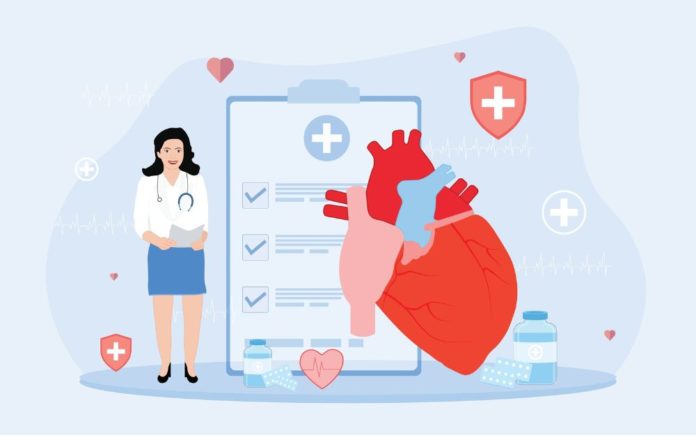In this blog, we will explore the different aspects of life after one year of CABG surgery, focusing on the journey of recovery, the importance of self-care, and the potential for a fulfilling and healthy life ahead.
Introduction:
Going through Coronary Artery Bypass Graft (CABG) surgery is a significant event in a person’s life. It marks a turning point in their journey towards renewed health and vitality. After CABG, patients often report pain, discomfort, depression, loss of general well-being, and inability to function at the same level as before the procedure. These feelings can seriously impair the patient’s quality of life in the longer run.
After completing the first year of recovery, patients often experience various physical, emotional, and lifestyle changes.
Remember that bypass was done to treat coronary artery disease, but that’s only half the story. The disease process is still ongoing despite the bypass, so the focus for these patients should be on treatments that can help stabilize heart disease. These treatments include medication, blood pressure control, cholesterol control, smoking cessation, exercise, diet, and adopting a healthy lifestyle. These are life-saving measures.
High blood pressure, Dyslipidemia, diabetes, increasing cholesterol, smoking, obesity, and inactivity all contribute to coronary artery disease, and all of these factors need to be addressed after surgery.
Controlling risk factors is still the most important factor in preventing coronary artery disease-related illness and death, despite advances in medical treatment. All patients ought to get broad awareness on these aspects of their heart health.
Life after a coronary artery bypass graft:
Adopting a healthy lifestyle is essential to reduce your risk of further heart problems when fully recovering from your operation.
For instance, you :
• Must quit smoking
• Eat a solid, adjusted diet
• Get more fit assuming that you’re overweight
• Moderate your liquor consumption
• Work-out routinely
You should likewise not disciontinue any medication.
Preventing future cardiac problems and ensuring a complete recovery:
Physical Recovery:
The first year after CABG surgery is crucial for physical healing and recovery. The body gradually heals, and the bypassed arteries adapt to their new role. Patients may experience various physical changes, including reduced chest discomfort, improved stamina, and increased energy levels. It is essential to continue following the post-surgery exercise program the healthcare team recommends. The heart can be strengthened, cardiovascular fitness can be improved, and overall well-being can be improved through regular physical activity like walking, swimming, or cycling. Do not start any physical fitness routine without first clearing it with your doctor.
Diet and Nutrition:
Maintaining a heart-healthy diet is of utmost importance after CABG surgery. Healthy fats, whole grains, lean proteins, and a variety of fruits and vegetables can support cardiovascular health and lower the risk of future complications. It is crucial to limit the intake of saturated and Trans fats, sodium, and processed foods. Working with a registered dietitian can provide personalized guidance and help individuals develop healthy eating habits that are sustainable in the long term.
Medication Adherence:
Strict adherence to prescribed medications is vital in managing heart health after CABG surgery. Medications such as antiplatelet drugs, statins, and blood pressure medications help prevent blood clots, control cholesterol levels, and manage blood pressure. It is important to take medications as prescribed and follow up regularly with the healthcare provider to monitor their effectiveness. Discuss any concerns or side effects with the healthcare team to ensure optimal medication management.
Emotional Well-being:
The emotional aspect of recovery should be looked into. Many patients may experience a range of emotions, including anxiety, fear, or even a sense of vulnerability, after undergoing CABG surgery. It is essential to seek emotional support from loved ones, friends, or support groups who can provide understanding and encouragement. Stress-reducing activities, such as meditation, deep breathing exercises, or pursuing hobbies and interests, can also contribute to emotional well-being. Additionally, attending cardiac rehabilitation programs can provide a supportive environment and professional guidance in managing emotional health and recovery.
Lifestyle Modifications:
Life after CABG surgery often requires significant lifestyle modifications to support cardiovascular health. Smoking cessation is critical, as smoking can significantly increase the risk of future heart problems. If necessary, seeking professional help or joining smoking cessation programs can provide support and resources. In addition, regular physical activity and a well-balanced diet are essential for reducing heart strain and improving overall well-being. Additionally, managing stress levels, getting enough sleep, and avoiding excessive alcohol consumption are essential components of a heart-healthy lifestyle.
Social Support and Rehabilitation:
Social support plays a vital role in the recovery process after CABG surgery. Family and friends can provide encouragement, assistance, and understanding throughout the journey. Engaging in cardiac rehabilitation programs can also be immensely beneficial. These programs provide a structured approach to recovery, offering education, counseling, and monitored exercise sessions. They serve as a platform for patients to connect with others who have undergone similar procedures and share experiences and coping strategies.
Follow-Up Care:
Regular follow-up appointments with the healthcare team are essential to monitor progress, evaluate cardiovascular health, and address any concerns or symptoms. During these visits, the healthcare provider may perform tests, adjust medications, or provide further guidance on lifestyle modifications. It is crucial for patients to actively participate in their follow-up care and communicate any changes or concerns they may have.
Conclusion:
Life after one year of CABG surgery is a journey of recovery and renewed health. It requires commitment, perseverance, and understanding of the necessary lifestyle changes. By embracing physical activity, adopting a heart-healthy diet, adhering to medication regimens, nurturing emotional well-being, and seeking ongoing medical care, individuals can significantly enhance their quality of life and reduce their risk of heart disease. Patients can embark on a fulfilling and healthy life beyond CABG surgery with the support of loved ones, healthcare professionals, and a positive mindset.


















